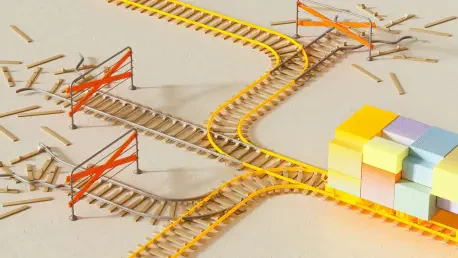Artificial intelligence has transformed countless industries through enhanced efficiency and novel capabilities, profoundly impacting the construction sector. This industry has increasingly acknowledged AI’s potential to improve operational processes, particularly in architecture and engineering. A recent survey by Deltek revealed a significant shift in AI tool adoption, with 53% of firms leveraging AI applications in contrast to the previous 38%. This technology assists in various functions, including proposal development, project planning, and data analytics. Nevertheless, the construction sector’s integration of AI remains varied, with several firms still depending on manual procedures for crucial aspects such as accounting and resource management. As AI continues to advance, discussions emerge regarding its comprehensive implementation and how it might redefine construction practices. The heightened interest in AI underscores the vital role of data accessibility and interoperability, which are increasingly critical in tackling challenges like labor shortages that affect complex projects.
The Role of AI in Design and Planning
AI’s role in design and planning has grown significantly, promising to reshape the construction industry’s approach to these critical phases. With machine learning algorithms and generative AI, tools such as digital twins and Building Information Modeling (BIM) allow for more dynamic and collaborative design processes. Digital twins have become instrumental in simulating real-world conditions, enabling architects and engineers to make informed decisions, reduce errors, and optimize resource allocation before actual construction begins. These technologies, empowered by AI, enhance precision and creativity in conceptualizing projects. Despite these advancements, the transition toward full digital maturity in the construction industry is gradual, with only 38% of firms considering themselves digitally mature. This digital maturity is crucial because it dictates a firm’s ability to implement AI technologies effectively, unlocking their full potential to transform deep-rooted practices in the industry. The integration of AI in design and planning not only opens new possibilities but also necessitates a reevaluation of conventional methods, encouraging firms to develop innovative strategies that harness state-of-the-art capabilities.
Challenges in AI Adoption and Integration
Despite the promising benefits, the adoption and integration of AI in the construction industry continue to face significant hurdles. Many construction firms still rely heavily on manual processes rather than fully embracing AI technologies, posing a barrier to achieving optimal efficiency and performance. Concerns about interoperability and data management persist, as the seamless sharing and accessibility of data across platforms are paramount to AI’s effectiveness. Additionally, the industry’s digital transformation has been inconsistent, with varying levels of readiness and capability among firms. This disparity is reflected in the finding that while 74% of firms aim to achieve digital maturity within two years, a sizable portion remains in the early stages of digital adoption. The construction sector’s transformation through AI requires not only technological evolution but also a shift in mindset and methodology. Strategies to overcome these challenges focus on improving interoperability, streamlining data integration, and fostering a culture of innovation. Addressing these issues could pave the way for more holistic AI deployment, ultimately enabling firms to redefine construction norms and improve project outcomes.
Future Considerations and Industry Implications
Artificial intelligence has significantly impacted numerous industries by boosting efficiency and introducing new capabilities, with the construction sector seeing notable changes. The industry is increasingly recognizing AI’s ability to refine operational processes, especially in fields like architecture and engineering. A Deltek survey shed light on the growing adoption of AI tools, noting that 53% of firms now use AI applications, up from a previous 38%. AI supports various tasks, such as proposal development, project planning, and data analysis. Despite these advancements, the integration of AI in construction remains inconsistent, as some companies still rely on manual methods for essential tasks like accounting and resource management. As AI progresses, conversations around its full-scale implementation and potential to reshape construction practices are taking center stage. The growing interest in AI highlights the importance of data accessibility and interoperability, vital in addressing challenges, including labor shortages, that complicate intricate projects.









